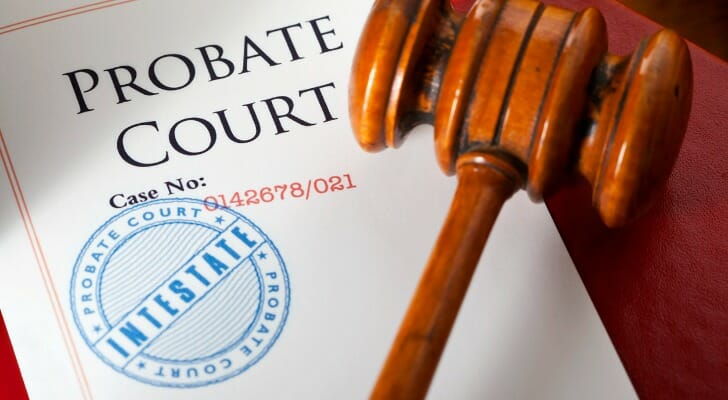What Happens in Probate Court
What is Probate Court?
Definition of probate court
Probate court is a specialized court that deals with matters related to the administration of a deceased person’s estate. It oversees the legal process that is initiated after someone dies and their property needs to be managed and distributed according to their will or state law. The court reviews the validity of wills and supervises estate administration.
Purpose of probate court
The main purpose of probate court is to facilitate the transfer of the decedent’s probate property to the proper heirs and beneficiaries. Probate property generally consists of assets owned solely by the deceased person or accounts without a named beneficiary. The court validates wills, appoints executors or administrators, oversees the inventory and appraisal of estate assets, and monitors distributions. Probate court also approves the payment of debts and taxes from the estate.
The Probate Process
Filing the petition
The first step in probate is to file a petition with the court to open probate of the estate. This is usually done by the named executor in the will or closest next of kin. The petition includes key details such as the decedent’s name, date of death, identities of heirs, and estimated value of the estate. Filing this petition officially commences probate.
Appointing an executor or administrator
The court will appoint an executor named in the will or an administrator if there is no will. This personal representative handles all matters related to administering the estate under the court’s supervision. Their key duties include notifying beneficiaries, inventorying assets, paying debts, and distributing property.
Notifying beneficiaries and creditors
The appointed executor or administrator must notify all beneficiaries named in the will and all known creditors of the estate. This allows beneficiaries to assert any claims and creditors to submit payment requests. Notices are published in newspapers in some cases to alert unknown beneficiaries and creditors.
Inventorying the estate
The executor or administrator must provide the court with a complete inventory of probate assets in the estate, including real estate, stocks, bank accounts, valuables, and personal effects. This inventory establishes the total value against which fees and distributions will be made.
Paying debts and taxes
Valid claims from creditors against the estate must be paid out of probate assets. Some debts like mortgages may be associated directly with certain assets. Estate, inheritance, and final income taxes also need to be paid. The court ensures accurate payment of all outstanding liabilities.
Distributing assets
After all debts and taxes are settled, the remaining probate property can be distributed to heirs in accordance with the will’s directives or state law if there is no will. The executor or administrator must obtain the court’s formal approval of the proposed distributions.
Closing the estate
Once assets are inventoried, debts and taxes paid, and remaining property distributed, the executor or administrator petitions the court to close the estate. This formal proceeding terminates probate and concludes the executor or administrator’s service.
Contested Estates and Wills
Grounds for contests
Probate of a will or administration of an estate can sometimes be challenged on certain grounds like improper execution, undue influence on the testator, or disputes over interpretations. Contests can also arise if heirs believe distributions are incorrect or unfair.
The contest process
Interested parties file objections with the probate court to initiate a dispute. The court will schedule hearings and gather evidence to make a ruling on the validity of the contest. All parties are notified and allowed to present arguments to support their position.
Outcomes of contests
If a will contest is successful, the court may declare all or part of a will invalid and order distributions under intestacy laws. Contesting an executor’s actions could result in their removal and replacement. The court has wide discretion in remedying issues to reach an equitable resolution.
Tips for A Smooth Probate Process
Have an updated will
Drafting a clear, legally valid will helps avoid potential contests and accelerates the court process. Reviewing it periodically ensures it remains current with intentions. Share location details with key heirs.
Work with an attorney
Experienced probate attorneys know court procedures and can guide correct filings, notices, and document preparation. This helps avoid irritating complications and delays. Attorney assistance may also be needed for estate disputes.
Keep thorough records
Documents like deeds, bank statements, tax returns, and receipts showing asset ownership streamline creating a comprehensive estate inventory. Keep a detailed list of liabilities as well.
Communicate with heirs
Openly discussing estate plans and intentions with heirs can reduce the chance of unpleasant surprises later. Periodic updates on administration progress foster trust. Seek consensus where possible.
FAQs
How long does probate take? The probate timeline varies greatly by state and complexity, but 12-24 months is common. Small, uncontested estates may finalize in a few months.
Who pays probate fees? Probate fees are paid from the decedent’s estate assets before final property distributions to beneficiaries. Typical fees include court costs, executor commissions, attorney fees, appraiser fees, etc.
When can beneficiaries get inheritances? Beneficiaries do not receive distributions until the estate is fully administered. The executor needs to settle all debts and taxes, file a final accounting, and get court approval of distributions.
What happens if someone contests the will? The probate court will schedule a hearing to review the contester’s objections to the will’s validity and make a ruling on whether to uphold or void the will. All parties can argue their position.
How are disputes over distributions resolved? For disputes over asset distributions, the probate court examines relevant estate documents and laws. The judge has discretion to make decisions resolving distribution disputes in the fairest way possible. Parties can appeal rulings.







